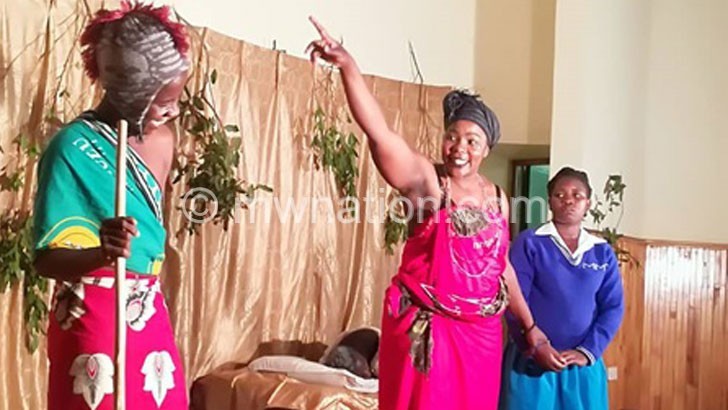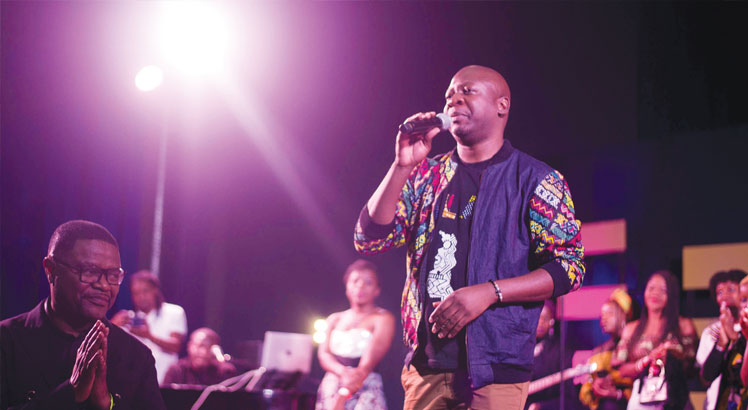Mutag delves into child abuse
Mzuzu University Theatre Arts Group (Mutag) introduced a new cast last week which staged The Chief’s Blanket to tackle gender-based violence.
The Chief’s Blanket was written by playwright Smith Likongwe, but adapted and directed by Mzuzu University lecturers William Maulidi, Misheck Mzumara and Misheck Banda.
The play centres on Layika, a 13-year-old girl who is forced to sleep with a visiting chief as a token of appreciation for presiding over the installation of the village’s new chief.

It is the norm in the village for the presiding chief to spend a night with a virgin as his ‘blanket’ whom he chooses during a dance competition.
However, Layika defied such cultural traditions, accusing the custodians of culture of hiding behind culture to justify their promiscuous behaviour.
“Don’t hide behind culture chief, you are just being careless,” she observes in the play as the 54-year-old chief coerces her to sleep with him. She overpowers him and runs away.
Apparently, the village fears a plague might befall them if Layika sticks to her guns against sleeping with the chief.
The play also exposes the double standards displayed by some villagers who attend campaigns against child abuse run by various non-governmental organisations (NGOs) while reinforcing the harmful cultural practices.
Says the chief’s adviser: “We drink tea with them [NGOs], chop their money and tell them what they want to hear. But once they leave, we go back to our ways. We cannot abandon our culture.”
But Layika is determined to use what she learnt in school and she stands up for her rights.
In an interview, Mzumara said the play was meant to educate girls to stand up against harmful cultural traditions in the modern times of HIV and Aids.
“We chose the play because at the moment, we have younger girls coming to the university unlike in the past when the university was receiving mature and older girls,” he said.
Mzumara said issues of sexual violence are rampant in the country and the university uses drama as a mirror so that “people are able to see themselves through that mirror to diagnose our problems and make adjustments or changes where necessary”.
The play was staged by Open and Distance Learning students.





